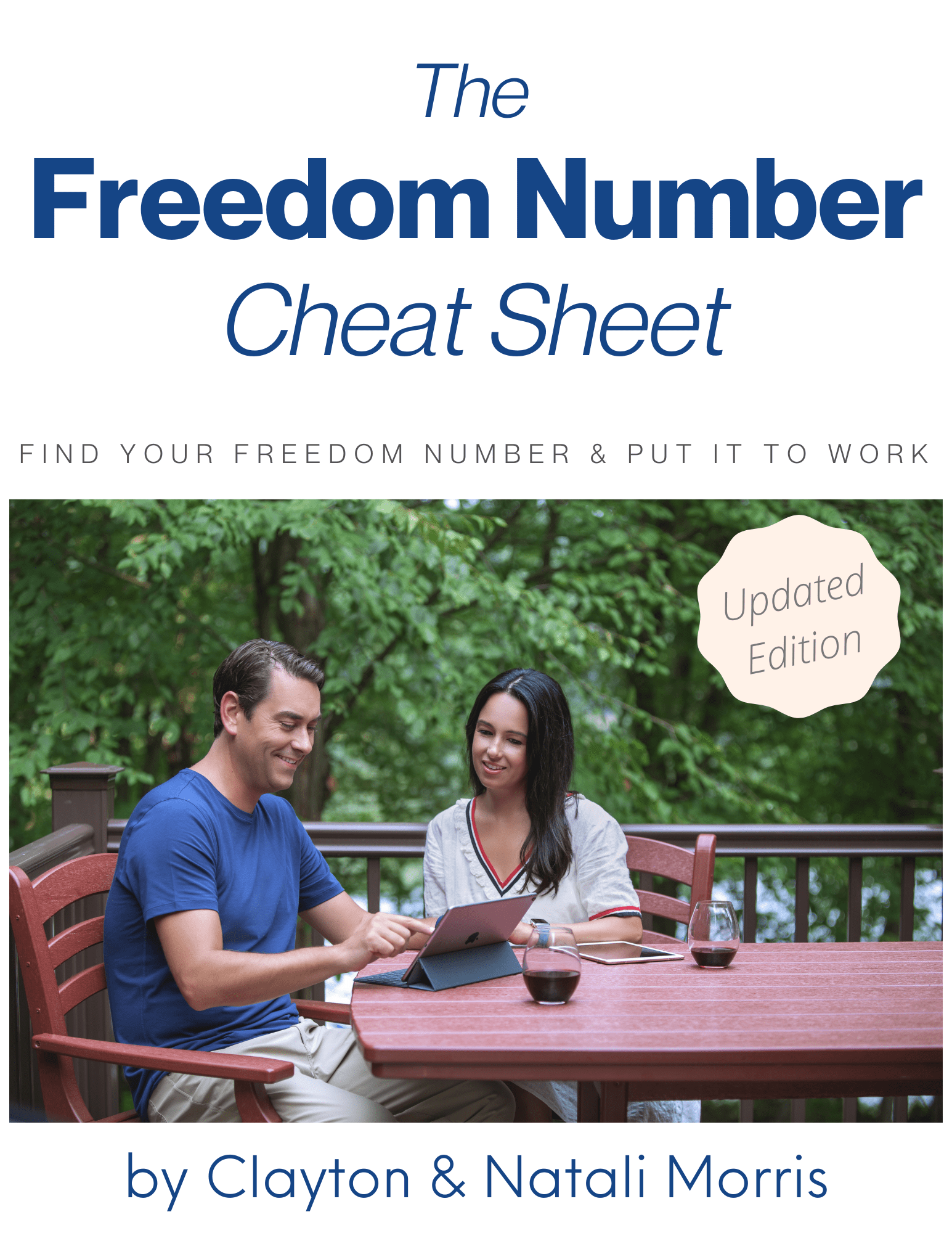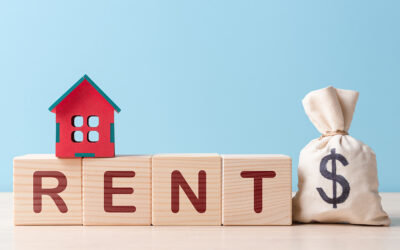
When it comes to how to pay yourself as a real estate investor, there are a few factors that come into play to determine how much, and the manner by which it’s paid. It all really depends on your personal situation. So today, we’re going to highlight a few different elements you should consider before transferring those funds to yourself.
Additionally, if you run a rental property business, that makes you the boss, which means you get to determine how much of your profits go into your pocket! Sounds awesome, right? But the reality is, this can be a bit confusing. With that said, let’s dive in and figure this out!
Getting a Business Checking Account
Having a business account is key. Because your LLC has an EIN, you’ll need a specific account made for businesses. When we first did this, we simply opened an account at our existing bank. Rookie mistake. Especially if you’re working with a big bank, this is probably not the best choice. Big name banks charge big fees. Find out what banks charge less in this podcast we put together on the subject of choosing business banking products.
Shop Local (or Online) for the Best Bank
Remember, every single expense comes out of your ROI, so you’ll want to shop around and get the best bang for your buck! We were able to find no-fee business checking accounts at a small, local bank. You can also find some great business checking accounts online, provided that you’re okay with not being able to go to a physical branch to conduct your transactions. Some banks will offer a low or no-fee account dependent on minimum balances or the number of transactions. Call a few local banks in your area, or check out Bankrate.com to find an account that fits your specific needs.
Don’t Break the Rules Set by the IRS
Now that you’ve got your business bank account set up, be sure to follow the rules so you don’t get in trouble with the IRS. A business account is not intended for personal use, so don’t use your business debit card the next time you hit the Starbucks drive-thru (unless of course, this is a business expense and you can prove it). Keep track of all of your receipts, make sure all real estate related expenses are coming out of this account. The rent that you receive every month should be deposited into this account also.
Consider Your Rental Property Expenses
Expenses are a part of any business, and real estate is no exception. This might seem obvious, but what you personally make from your business can only be calculated from what your business makes after expenses. You’ll need to factor in vacancies, repairs, expenses, management fees, insurance, property taxes, and more. You do not want to pay yourself the entirety of rent that your business is earning, or your business will quickly be in the red. Meet with a real estate savvy CPA to discuss making the numbers work, or at the very least, put together a spreadsheet. We always recommend being conservative with your numbers so there are no surprises.
How Much Money Should You Pay Yourself
How much money you decide to personally make from your real estate business is a very personal decision. This can depend on many factors. Do you have a loan you need to pay off? What is your investment strategy? What season of life (and business!) are you in? If you’re just starting out and need the extra income to make ends meet, you might be inclined to take a larger chunk of cash flow for personal use. If you’re focused on portfolio growth, you might want to take very little so you can reach your goals at an accelerated rate. Just be honest with yourself, and know that this number can change over time.
Look Into the “Profit First” Model
Before taking out a draw to pay yourself, you may want to consider the Profit First model which is explained in a book by Mike Michalowicz. It’s a formula that ensures the investor is paid properly, and that their real estate business is running efficiently. The bottom line is that it can make your business more profitable, so when you want to pay yourself, the funds that you need, are there. In a nutshell, this formula calls for the division of your money to be placed in four different categories, which in turn, would result in four different bank accounts for the following – profit, owner pay, taxes, and expenses. We put together a write up on Profit First that explains it more in detail; it’s definitely worth looking into. You can also just pick up the book from Amazon.
How to Get Paid as A Real Estate Investor
Once you’ve decided how much you feel you should be paid, you can transfer those funds to yourself, by whatever avenue is appropriate for your business set up. For example, as a sole proprietor, single member LLC, or multi-member LLC, you can simply take an owner’s draw. You can do this by writing a physical paper check, set up an online banking transfer, or automate your transfer. Be sure to mark your transfer as distribution or owner pay. For those property investors who are set up as an S Corp or C Corp, you typically pay yourself through a salary, which includes fixed payments on a regular schedule.
A Word About Income Taxes
Regardless of what you choose to make from your business, the IRS requires that you pay income tax on the total net income. Since an LLC is a pass-through entity, taxes are calculated on your personal tax return. However, there are ways to lower your tax burden, to the point of not paying any taxes at all. This is especially true with the 2018 tax code in place. This has allowed smart investors to maximize their profits by lowering their taxes. Find out what these investors are doing to boost their profits in this post that we put together on real estate tax hacks.
To find out more on how to benefit from this rental property friendly tax code, and in turn, be able to pay yourself more, take a look at the tips in this How To Pay No Taxes with Real Estate Investing video. It features Tom Wheelwright, the personal tax advisor to real estate genius, Robert Kiyosaki.
Additionally, if you are paying taxes as a rental property investor, something is off. You really shouldn’t be paying anything in taxes because the IRS has set up the system to reward real estate investors. For those who are ending up owing taxes, the first thing you will want to do is make sure you are utilizing a tax professional who specializes in real estate. We suggest looking over our page that discusses working with Tom Wheelwright of WealthAblility. You will get a chance to hear some insider tips straight from him in the following video.
Getting in the Right Mindset
I know this seems complicated, but don’t get bogged down in the details. Don’t let this stop you from taking action and building financial freedom. Take it one step at a time, and contact your CPA if you have questions about how to do it right. And remember, like most things in finances, this is not one-size-fits-all. Don’t try to replicate someone else’s path; do what works for you! Many investors have become financially free; you can also, by simply using this Freedom Cheat Sheet that we put together that will help you find what your financial freedom number is.
Frequently Asked Questions
If you are new to the game, paying yourself as a rental property investor can be a bit confusing. There are many factors to consider, and everything must be done correctly to ensure you don’t run into issues with the IRS. We receive many questions pertaining to paying yourself as a real estate professional, and here are a few of our most common questions:
1. Can I pay myself for work on my rental property?
Yes, you may pay yourself for the labor you put into your own rental property. However, it may not be the best decision as far as taxes are concerned, and can ultimately cut into your bottom line. If you perform the repairs yourself, and pay yourself for the labor, it will be considered taxable income, and self-employment tax will kick in, increasing your tax burden. This, in turn, will reduce your profit.
Something else to keep in mind is that when you hire an outside contractor to perform repairs on your rental property, the labor and the materials are both tax-deductible. When you do the property repairs yourself, the materials are still deductible, but not your labor.
2. How do you pay yourself from your business LLC?
The manner in which you pay yourself through your business LLC is first determined by what the structure of your LLC entity is. This would include your business being labeled as a sole proprietorship, partnership, or corporation. Let’s go over how to pay yourself for each of the three LLC classifications:
- Single Member LLC (Sole Proprietorship): To pay yourself as the sole owner of a single member LLC, you would take an owner’s draw. This can be easily done by writing a check or doing an online transfer from your business bank account to your personal bank account. You will need to keep a record of the draw for tax purposes.
- Partnerships/Multi-Member LLC: If you share control of your LLC with one or more other people, your method of paying yourself is much like a single member LLC where you and your partners can pay yourself through an owner’s draw, while ensuring there is a proper paper trail for your tax records.
- S Corp/C Corp: For an LLC that has been designated to be taxed as an S or C Corp, you may not take an owner’s draw. In this case, the owners would essentially be employees, and will be paid a salary where taxes are withheld from your paycheck. It’s best to obtain the assistance of a payroll company to ensure everything is set up properly in the eyes of the IRS.
If you want to learn more about how we use our LLC business bank account money, check out our podcast on the topic. We also created a video on the subject of why an LLC is the best legal entity for real estate investors who want to keep more money in their pocket.
3. Can I pay myself a management fee for my rental property?
You can pay yourself a fee for managing your own rental property, but this may not be the wisest course of action. When you transfer money from your business banking account to your personal account, the IRS will see this as income, and you will be taxed accordingly. It will need to be reported on your Schedule C, and will raise your overall taxes.
For those who are managing their own rental properties, a lot of our customers have switched over to utilizing Landlord Studio and it has streamlined their process, making their business more profitable. Check out the Landlord Studio website to see what their online property management software system can do to make things easier for you.
Helpful Morris Invest Resources for Real Estate Investors
Check out our additional resources below, as well as our quick guide to real estate lingo:
- Fund & Grow provides our customers with money to invest – check out our review.
- Take a look at our write-up on how to find the right business bank.
- We put together a post on building wealth with off-market properties, check it out.
- Read our post on the 1% rule to save yourself time and money.
- Still investing in the stock market? Learn why we feel real estate is more profitable.
- Read our article on how a cost segregation study can save you thousands in taxes.
- We use and recommend a few real estate investing tools – here’s what they are.
- Our customers use NREIG Insurance Services – see what they have to offer.
Build Great Wealth as a Property Investor and Pay Yourself Accordingly!
As a real estate professional, you will not only want to know how you can pay yourself, but also how you can maximize your profits so that money is there for you when you need it. At Morris Invest, we have an expert team of investors who can show you how to become a successful rental property investor, and set you on the path to financial freedom. Book a free call with the Morris Invest team; we would love to speak with you.
Ready To Build Passive Income Through Rental Real Estate?
Ready to talk about your goals? We're here to show you the tools and teach you the process to begin earning legacy wealth for you and your family.








